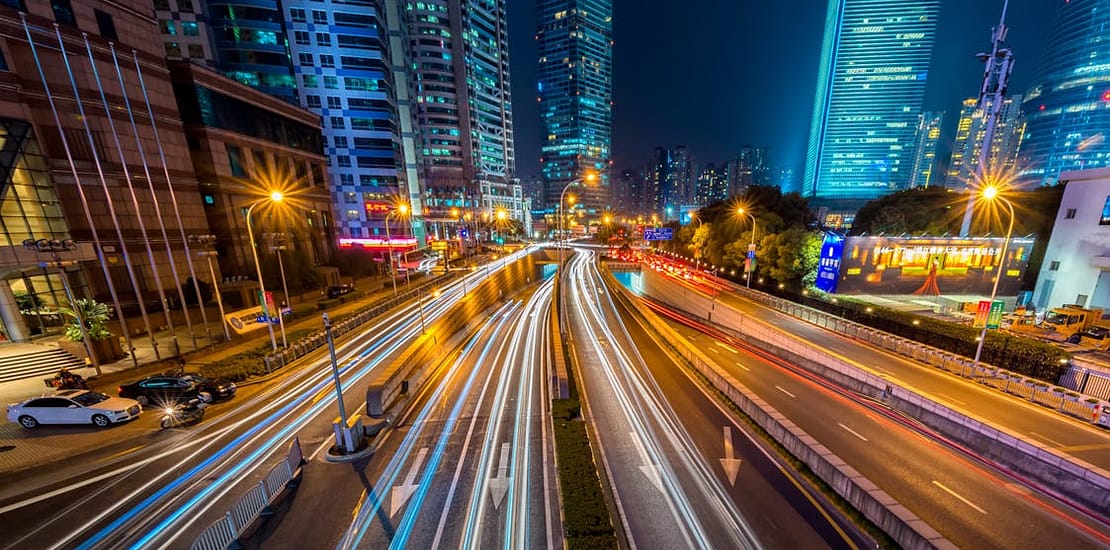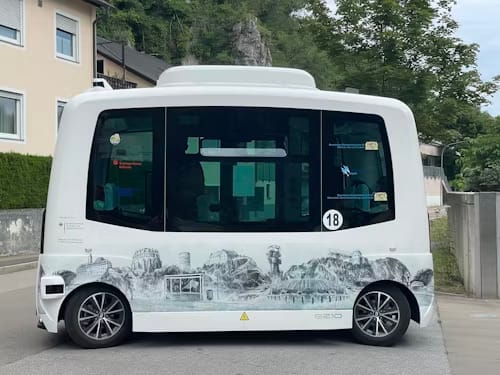The Evolution of AI in Smart Cities: Transforming Urban Living
- April 12, 2024
- Posted by: Cheryl Li
- Category: AI & AI Automation Trends

As urbanization continues to rise, cities worldwide face numerous challenges, including traffic congestion, pollution, energy consumption, and resource management. To address these issues, the concept of smart cities has emerged, leveraging advanced technologies to create more efficient, sustainable, and livable urban environments. At the heart of this transformation is Artificial Intelligence (AI), a driving force behind the evolution of smart cities. This blog post explores how AI has evolved in the context of smart cities and the impact it is having on urban living.
The Emergence of Smart Cities
Smart cities are urban areas that utilize digital technology, data, and intelligent solutions to improve the quality of life for their residents. The goal is to create interconnected systems that enhance efficiency, reduce environmental impact, and promote sustainable growth. AI plays a crucial role in achieving these objectives by enabling real-time data analysis, predictive insights, and automation.
Early Stages of AI in Smart Cities
The initial integration of AI in smart cities focused on solving specific problems through isolated applications. These early stages saw the deployment of AI in areas such as:
Traffic Management
One of the earliest applications of AI in smart cities was traffic management. AI algorithms analyzed traffic data to optimize signal timings, reduce congestion, and improve traffic flow. This not only enhanced commuting experiences but also reduced fuel consumption and emissions.
Public Safety
AI-powered surveillance systems were introduced to enhance public safety. These systems used computer vision and machine learning to detect unusual activities, identify potential threats, and alert authorities in real-time. The use of AI in crime prevention and response significantly improved urban safety.
Waste Management
AI-driven waste management systems helped cities optimize waste collection schedules and routes. By analyzing data on waste generation patterns, these systems ensured timely and efficient waste disposal, reducing operational costs and environmental impact.
The Evolution of AI: Integrated Systems and IoT
As technology advanced, the integration of AI with the Internet of Things (IoT) marked a significant evolution in smart cities. IoT devices collect vast amounts of data from various sources, such as sensors, cameras, and smart meters. AI processes and analyzes this data to provide actionable insights and drive intelligent decision-making.
Smart Infrastructure
AI has revolutionized urban infrastructure by enabling predictive maintenance and efficient resource management. For instance, AI-powered sensors monitor the condition of roads, bridges, and buildings, predicting potential failures and enabling timely repairs. This proactive approach reduces maintenance costs and enhances public safety.
Energy Management
AI plays a pivotal role in optimizing energy consumption in smart cities. AI algorithms analyze data from smart grids, weather forecasts, and consumption patterns to predict energy demand and optimize supply. This leads to more efficient energy distribution, reduced costs, and lower carbon footprints. Additionally, AI facilitates the integration of renewable energy sources, promoting sustainability.
Environmental Monitoring
AI-driven environmental monitoring systems help cities track air and water quality, noise levels, and other environmental parameters. By analyzing real-time data, AI can identify pollution sources, predict environmental trends, and recommend corrective actions. This ensures a healthier living environment for urban residents.
AI-Driven Mobility Solutions
The evolution of AI has brought about significant advancements in urban mobility, transforming how people and goods move within cities.
Autonomous Vehicles

Autonomous vehicles (AVs) are one of the most notable AI applications in smart cities. These self-driving cars use AI to navigate roads, interpret traffic signals, and make real-time decisions to ensure safe and efficient transportation. AVs have the potential to reduce traffic accidents, lower emissions, and improve accessibility for individuals with mobility challenges.
Ride-Sharing and Mobility-as-a-Service (MaaS)
AI has also revolutionized ride-sharing and Mobility-as-a-Service (MaaS) platforms. AI algorithms analyze user data, traffic conditions, and demand patterns to optimize routes, reduce waiting times, and enhance the overall user experience. By providing flexible and efficient transportation options, these AI-driven solutions help reduce the reliance on private vehicles, alleviating traffic congestion and lowering emissions.
Public Transportation
AI-powered public transportation systems improve the efficiency and reliability of buses, trains, and trams. Predictive analytics help optimize schedules and routes, ensuring timely arrivals and departures. AI also enhances passenger experience by providing real-time updates and personalized travel recommendations.
Enhancing Urban Living with AI
Beyond infrastructure and mobility, AI is enhancing various aspects of urban living, making cities more livable and inclusive.
Smart Healthcare
AI has the potential to transform urban healthcare systems by providing personalized and predictive healthcare services. AI algorithms analyze health data from wearable devices, electronic health records, and other sources to predict health risks, recommend preventive measures, and improve patient outcomes. AI-powered telemedicine platforms also ensure that residents have access to healthcare services, regardless of their location.
Education and Community Engagement
AI-driven educational platforms offer personalized learning experiences for students, catering to their individual needs and learning styles. AI also facilitates community engagement by analyzing data from social media, surveys, and other sources to understand public sentiment and preferences. This helps city officials make informed decisions and address community needs effectively.
Housing and Real Estate
AI is transforming the housing and real estate sectors by predicting market trends, optimizing property management, and enhancing the home-buying experience. AI algorithms analyze data on property values, neighborhood trends, and buyer preferences to provide accurate market forecasts and personalized recommendations.
The Future of AI in Smart Cities
The evolution of AI in smart cities is an ongoing process, with continuous advancements and new applications emerging regularly. The future of AI in smart cities holds immense potential, driven by innovations such as:
Advanced AI and Machine Learning Models
As AI and machine learning models become more sophisticated, they will be able to handle more complex tasks and provide deeper insights. This will enhance the capabilities of smart city systems, making them more efficient and responsive.
Edge Computing
Edge computing will play a critical role in the future of smart cities by enabling real-time data processing at the source. This will reduce latency, enhance data security, and improve the overall performance of AI-driven systems.
Collaborative AI
Collaborative AI involves multiple AI systems working together to solve complex urban challenges. This approach will enable more comprehensive and integrated solutions, addressing the interconnected nature of smart city ecosystems.
Ethical AI and Governance
As AI becomes more pervasive in smart cities, ethical considerations and governance will become increasingly important. Ensuring transparency, fairness, and accountability in AI systems will be crucial to building trust and achieving sustainable urban development.
Conclusion
The evolution of AI in smart cities is transforming urban living in profound ways. From optimizing infrastructure and mobility to enhancing healthcare, education, and community engagement, AI is driving innovation and creating more efficient, sustainable, and inclusive urban environments. As technology continues to advance, the role of AI in smart cities will only become more significant, shaping the future of urban living and improving the quality of life for residents worldwide. By embracing AI-driven solutions, cities can address their most pressing challenges and pave the way for a smarter, more connected future.

